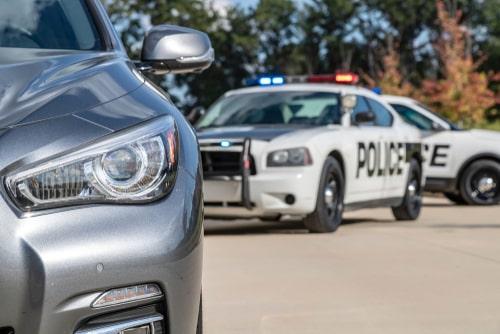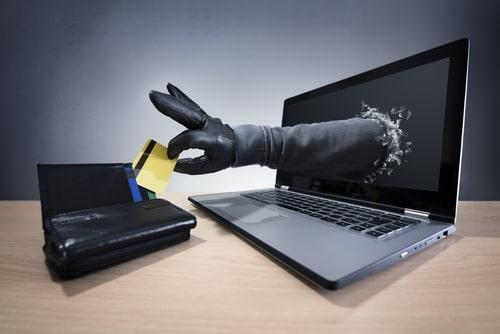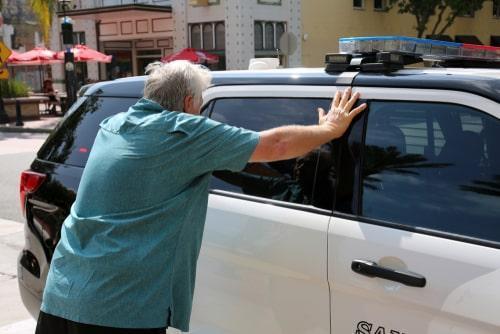Recent Blog Posts
What Are the Penalties of Driving on a Suspended Driver’s License?
 The state of Illinois takes traffic violations seriously, since disobeying traffic laws can lead to car accidents with injuries. Certain infractions can result in criminal charges, and a motorist losing his or her driving privileges for a period of time. This can cause great hardship if a person relies on driving to get to and from work to support his or her family. Depending on the offense, an individual may be able to obtain an occupational license, which allows him or her to drive to designated places at specific times for employment or school. However, if a driver operates his or her vehicle on a suspended or revoked license, the penalties can be steep. An experienced criminal defense attorney can help defend against these serious charges.
The state of Illinois takes traffic violations seriously, since disobeying traffic laws can lead to car accidents with injuries. Certain infractions can result in criminal charges, and a motorist losing his or her driving privileges for a period of time. This can cause great hardship if a person relies on driving to get to and from work to support his or her family. Depending on the offense, an individual may be able to obtain an occupational license, which allows him or her to drive to designated places at specific times for employment or school. However, if a driver operates his or her vehicle on a suspended or revoked license, the penalties can be steep. An experienced criminal defense attorney can help defend against these serious charges.
Reasons for Suspension or Revocation
In Illinois, after a conviction for a traffic violation, points are added to a motorist’s driving record, with the number of points varying according to the severity of the offense. Multiple violations can result in the suspension of driving privileges. A few of the most common traffic offenses that can warrant a license suspension or revocation.
What Actions Can Lead to Home Invasion Charges in Illinois?
 Laws are put in place throughout the United States to protect the safety and well-being of its citizens. Here in Illinois, property crimes are taken seriously, and they can result in significant punishments depending on the circumstances surrounding the incident. There are many different types of criminal offenses that are categorized as property crimes, such as vandalism, trespassing, burglary, robbery, and home invasion. Although it may seem like home invasion would just be entering a person’s home unannounced, it actually involved more than that and can result in serious consequences. That is why it is essential that anyone accused of this crime consults an experienced criminal defense attorney who can help defend against such charges.
Laws are put in place throughout the United States to protect the safety and well-being of its citizens. Here in Illinois, property crimes are taken seriously, and they can result in significant punishments depending on the circumstances surrounding the incident. There are many different types of criminal offenses that are categorized as property crimes, such as vandalism, trespassing, burglary, robbery, and home invasion. Although it may seem like home invasion would just be entering a person’s home unannounced, it actually involved more than that and can result in serious consequences. That is why it is essential that anyone accused of this crime consults an experienced criminal defense attorney who can help defend against such charges.
Not All Illinois Property Crimes Are Alike
Like many other states, Illinois law separates the offense of home invasion from that of residential burglary. Burglary of a residence refers to the unlawful entry or remaining in the home of another person with intent to commit a theft or another felony crime. Although home invasion is a similar act, it involves a person entering a home that he or she knows or believes is currently occupied. For a home invasion to be charged, any of the following actions would apply:
What Are the Illinois Penalties for Drug Paraphernalia Possession?
 Although recreational marijuana was legalized in Illinois this year, there are still many other drugs that are classified as illegal in the state. These include cocaine, LSD, heroin, Methamphetamines, and Ecstasy. In addition, owning or carrying certain drug paraphernalia can result in serious criminal charges. The consequences of a conviction can be severe, from fines to a lengthy prison sentence, not to mention a stain on your record. Many people may not know that simply having an item that is used to ingest or make a drug is a crime. If you or someone you know is facing any type of drug crime charge, it is essential to seek the legal guidance of an experienced criminal defense attorney.
Although recreational marijuana was legalized in Illinois this year, there are still many other drugs that are classified as illegal in the state. These include cocaine, LSD, heroin, Methamphetamines, and Ecstasy. In addition, owning or carrying certain drug paraphernalia can result in serious criminal charges. The consequences of a conviction can be severe, from fines to a lengthy prison sentence, not to mention a stain on your record. Many people may not know that simply having an item that is used to ingest or make a drug is a crime. If you or someone you know is facing any type of drug crime charge, it is essential to seek the legal guidance of an experienced criminal defense attorney.
What Is Paraphernalia?
In Illinois, the Drug Paraphernalia Control Act defines drug paraphernalia as any materials or equipment used in the illegal production, processing, packaging, storing, hiding, testing, or use of drugs. Materials that are used to manufacture Methamphetamine are also illegal, but they are covered under a separate statute.
What Are the Most Common Crimes Committed in Chicago?

Chicago has been named one of the most dangerous cities, with extremely high crime rates. Turning on the news each night, you likely see devastating videos of gun violence leading to lost lives. While it is no secret that Chicago has more than its fair share of violent crimes, statistics show that property crimes actually make up 76 percent of criminal offenses in Chicago in 2018. As a city known for its crime, it is important to know what actions constitute the most common offenses if you are a Chicagoan. Knowing who you can turn to if you find yourself facing criminal charges is even more critical. The legal team at Luisi Legal Group assists clients in defending themselves against all of the following charges.
Theft
Of all the crimes committed in Chicago, theft is the most common, with nearly 65,000 offenses recorded in 2018. The definition of theft is fairly obvious; it means taking something that does not belong to you. This also includes knowingly obtaining stolen property, even if you are not the one who stole it. The consequences of theft are dependent upon the price of the item. The lowest charge one can face is a Class A misdemeanor for items under $500 in value. However, when the price begins to surpass $100,000, those found guilty have committed a Class X felony.
How Are Identity Theft Crimes Punished in Illinois?
 Crimes can consist of various actions, some of which do not always involve physical confrontations. According to the Federal Trade Commission (FTC), in 2018, 15 percent of all fraud complaints were related to identity theft. Overall, 33 percent of U.S. adults have experienced identity theft at some point in their lifetime. It can be relatively easy to find people’s personal and sensitive information on social media and networking sites, which can make them targets for phishing and imposter scams. Identity theft basically means representing yourself as someone else for financial gain. This offense is considered a form of fraud, which can carry significant penalties in Illinois. If you are facing charges related to identity theft, a seasoned criminal defense attorney can help you defend against this type of white-collar crime.
Crimes can consist of various actions, some of which do not always involve physical confrontations. According to the Federal Trade Commission (FTC), in 2018, 15 percent of all fraud complaints were related to identity theft. Overall, 33 percent of U.S. adults have experienced identity theft at some point in their lifetime. It can be relatively easy to find people’s personal and sensitive information on social media and networking sites, which can make them targets for phishing and imposter scams. Identity theft basically means representing yourself as someone else for financial gain. This offense is considered a form of fraud, which can carry significant penalties in Illinois. If you are facing charges related to identity theft, a seasoned criminal defense attorney can help you defend against this type of white-collar crime.
What Constitutes Identity Theft?
A person commits the offense of identity theft when he or she knowingly uses any personal identification information or documents of another person to falsely obtain credit, monetary funds, goods, and services, or property. An individual’s personal information can include name, address, date of birth, telephone number, Social Security number, credit or debit card account number, or passport. Types of documentation can include a person’s birth certificate, driver’s license, or state ID. In many cases, a person may use someone else’s credit card or debit card to make purchases, obtain a loan, or get cash out. Other acts include filing fraudulent tax refund forms or writing bad checks. Medical identity theft occurs when information is stolen, including health insurance member numbers, in order to receive certain medical services.
What Driving Habits Should Change in Bad Weather?
 Chicago’s Kennedy Expressway experienced a nearly 60 car pileup this Wednesday - the morning of icy conditions more usually seen in the winter months. This crash was a result of a combination of speeding and following too closely. These actions can lead to traffic tickets and fines for smaller crashes where it is obvious who is at fault.
Chicago’s Kennedy Expressway experienced a nearly 60 car pileup this Wednesday - the morning of icy conditions more usually seen in the winter months. This crash was a result of a combination of speeding and following too closely. These actions can lead to traffic tickets and fines for smaller crashes where it is obvious who is at fault.
The impact of this major crash was that 14 people were taken to the hospital and several more were treated on-scene. All of this could have been avoided if drivers practiced safer driving habits in the winter-like weather.
Safe Driving Tips for Icy Conditions
The roads become slicker even if it looks like ice is not sticking to the pavement. Drivers should slow their rate of travel because the faster one drives, the less control the driver has if the car starts to slide on the ice.
As for following closely, this action is reckless even if the conditions are not slick because if the car in front brakes suddenly, the driver of the second car has less time to hit their brakes and a rear-end collision can happen.
How Speeding on the Highway Can Have Serious Consequences in Illinois
 Last year, there was a six-car pileup on the Kennedy Expressway which injured nine people and killed at least one person. A semi-truck struck stopped vehicles and the driver was charged with failure to reduce speed, according to the Illinois State Police department.
Last year, there was a six-car pileup on the Kennedy Expressway which injured nine people and killed at least one person. A semi-truck struck stopped vehicles and the driver was charged with failure to reduce speed, according to the Illinois State Police department.
Since then, not much has changed in regards to speeding citations on the Kennedy or the other highways which connect Chicago to the suburbs. The most unfortunate part is seeing cars travel at far too high of a speed on roads that can already be dangerous because of the number of vehicles.
When Does Speeding Become Aggravated Speeding?
All drivers are responsible for knowing the speed limits on each type of road in Illinois. While there should be signs posted along the roads to remind drivers, everyone should know and maintain the proper speed in order to avoid collisions:
- 15 mph in an alleyway
- 30 mph in urban districts unless otherwise posted
What to Expect During an Illinois DUI Traffic Stop
 Driving after consumption of alcohol or drugs is a dangerous action. It can put the driver and those around him or her at risk of injuries or even death. This is why Illinois has strict penalties for those who choose to drive intoxicated.
Driving after consumption of alcohol or drugs is a dangerous action. It can put the driver and those around him or her at risk of injuries or even death. This is why Illinois has strict penalties for those who choose to drive intoxicated.
Illinois State Police officers have the right to pull over any vehicle they suspect is being driven by a drunk driver. Signs that they look for are the car swerving across the road, braking and/or speeding suddenly for no reason, and misuse of car indicator lights.
The DUI Traffic Stop Process
Like any other traffic stop, the police officer will ask for the driver’s license and proof of insurance. They can also ask the driver if they are aware of what they have been stopped for. All the while, the officer is observing the condition of the driver. They are looking for signs that the driver is intoxicated:
- Red, watery eyes
- Slurred speech
- Unable to follow directions
Illinois Passes Over 250 New Laws
 There have been many changes to Illinois law since the start of the new year. The number of new laws - including laws that have been amended - exceeds 250 and many of them deal with serious criminal charges, traffic violations, and more.
There have been many changes to Illinois law since the start of the new year. The number of new laws - including laws that have been amended - exceeds 250 and many of them deal with serious criminal charges, traffic violations, and more.
Of course, the law has been talked about the most before and after the new year was the legalization of recreational marijuana. Not only did this law change possession of marijuana charges, but it also annulled several minor possession charges that were committed before 2020.
The New Marijuana Law
The state of Illinois is the 11th state to make recreational marijuana legal. After the first of the year, the state opened several licensed dispensaries where people over the age of 21 can purchase marijuana.
The new law also grants possible pardons to those who were convicted of marijuana possession before the new law came into being. Before the clock struck midnight on Dec. 31, 2019, Governor J.B. Pritzker pardoned 11,000 people who were convicted of possession over 30 grams, but less than 500 grams.
What Does Reckless Driving Mean According to Illinois Law?
 Roadways are becoming more dangerous every year. Especially now entering the winter season, it is important for all drivers to travel safely and obey the rules of the road. Any action on the road that is noncompliant with the law can be considered reckless driving which leads to consequences.
Roadways are becoming more dangerous every year. Especially now entering the winter season, it is important for all drivers to travel safely and obey the rules of the road. Any action on the road that is noncompliant with the law can be considered reckless driving which leads to consequences.
Illinois law says that reckless driving is any act while driving a motor vehicle that blatantly puts others in danger of injury or death. These actions are enforced through traffic citations when police officers observe reckless behavior on the streets.
Examples of Reckless Driving
The law is broad when it comes to determining reckless driving. The simple act of speeding can result in reckless driving charges because if someone is driving too quickly, they can easily collide with another vehicle or a pedestrian.
Other examples of reckless and dangerous behavior include:
- Swerving between lanes - with or without indicating
- Talking on the phone while driving







